Elevate your local knowledge
Sign up for the iNFOnews newsletter today!
Sign up for the iNFOnews newsletter today!
Selecting your primary region ensures you get the stories that matter to you first.
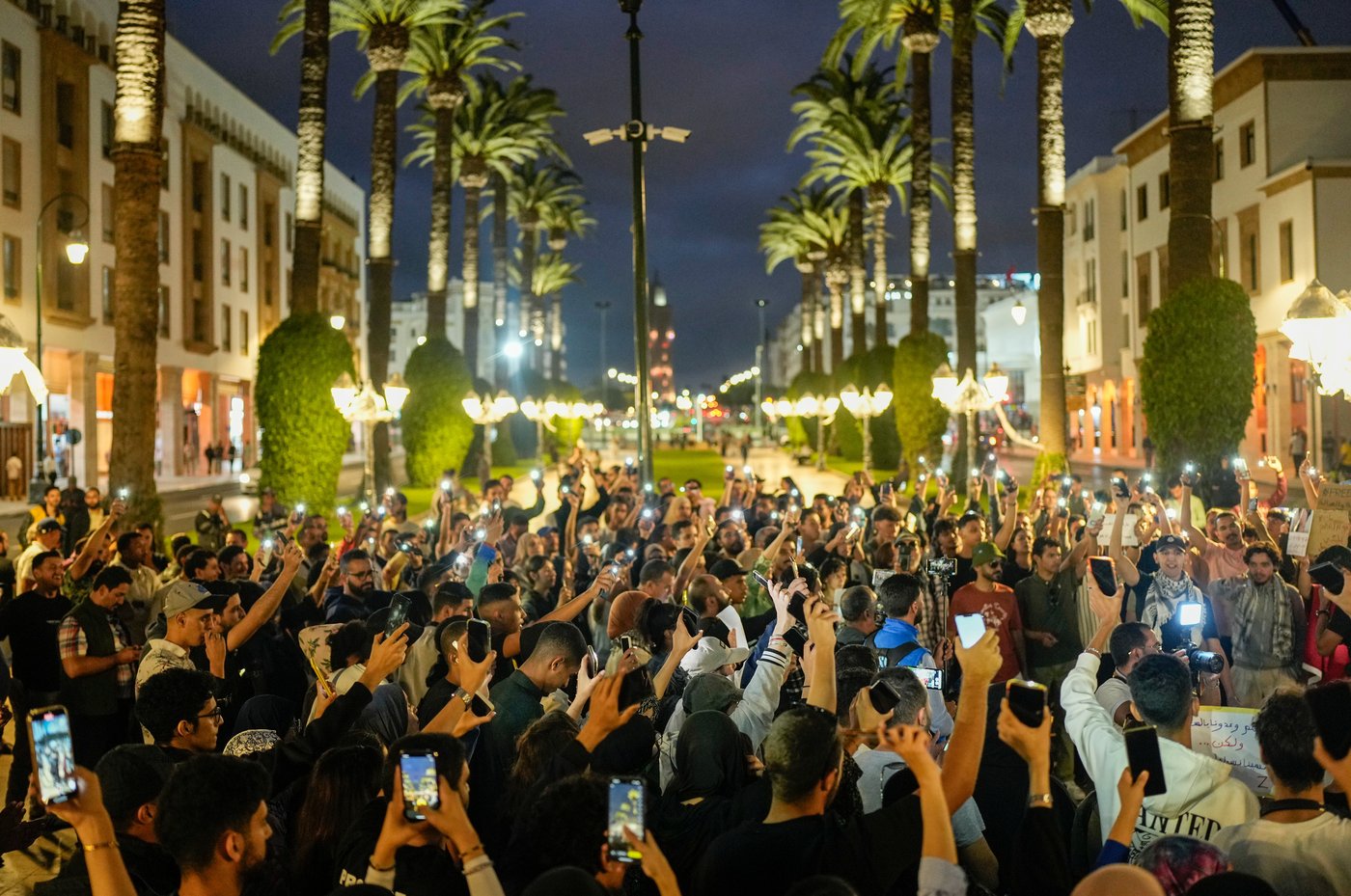
CASABLANCA, Morocco (AP) — Morocco’s youth-led movement poured back onto the streets Thursday after a midweek pause, hoping their return will be loud enough to push King Mohammed VI into firing the prime minister and delivering long-promised reforms to tackle corruption and improve public services.
The “Gen Z 212” movement behind the protests called for the removal of what they describe as “the corrupt government” and urged officials to prioritize spending on health and education.
Nationwide demonstrations came after a midweek pause that organizers said was designed to focus energies on one final display of strength before King Mohammed VI’s address to the nation’s parliament on Friday.
Despite thinner crowds, anger from those in attendance toward the government hasn’t let up.
In Casablanca, hundreds took to the streets holding up pictures depicting government ministers as devils. Some held banners that said “We won’t be silent anymore,” while others demanded the resignation of Prime Minister Aziz Akhannouch, who is also one of Morocco’s wealthiest businessmen.
Many said they were eagerly anticipating the king’s planned address on Friday and hoped that he would expand upon reforms that officials have proposed in response to the protests.
“I am here, a day before the king’s speech, demanding better public services and to topple corruption,” said Koyo, a 22-year-old psychology student who declined to give his full name.
Protesters appeal to king
The protests have targeted Morocco’s spending on infrastructure such as stadiums for the 2030 FIFA World Cup and drawn a direct line between those priorities and neglect of facilities for health care and education. The demonstrations first erupted after eight women died giving birth in a public hospital in Agadir, a large coastal city 300 miles (483 kilometers) south of the capital Rabat.
Gen Z 212 — the leaderless collective behind the protests — has organized them on social media platforms including TikTok and Discord, where it now has more than 200,000 followers. The collective says the investment choices reflect how corrupt, unaccountable officials are disconnected from youth concerns.
Elected officials and government ministers have tried to answer their grievances. But planned investments and reforms to medical education have hardly appeased them and they’ve angled for broader reforms.
Last week the leaderless movement published a public letter to the king asking him to dismiss the government and corrupt political parties, release political detainees and convene a national forum to bring corruption to account.
“We, the youth of Morocco, are requesting your majesty to intervene for a profound and just reform that restores rights and punish the corrupt,” the group wrote in the letter.
Those demands were on stark display at Thursday’s demonstrations, including in Casablanca, where young activists lashed out at government officials and called on the king — as Morocco’s highest authority — to act on their behalf.
“We hope that it will mark a good omen for us, the Moroccan youth, and for all the Moroccans,” Soufiane, an 18-year-old college student told The Associated Press. He carried a “Wanted” poster depicting Health Minister Amine Tahraoui and, like most at the unauthorized demonstrations, declined to provide his full name out of fear of retribution.
The Health Ministry did not respond to requests for an interview.
Movement faces setbacks
Gen Z 212 lost some popular support after reports of looting and smashed storefronts in several cities last Wednesday and Thursday. It has scrambled to revive momentum and sustain pressure on the government. The group denounced violence and vandalism and, in some cities, protesters organized cleanups and gave flowers to the security forces.
Despite organizers’ strategy, Thursday’s protests appeared smaller than some last week and over the weekend, which emerged as some of the country’s largest displays of anti-government anger in years.
Since Sept. 27, security forces have arrested hundreds of participants, killing three and injuring others in clashes that rights groups have criticized as heavy-handed. Local media reported last week that 66 participants were facing vandalism charges linked to the protests in northern Morocco.
Amid the arrests, politicians across the political spectrum have voiced sympathy with the protesters’ demands and urged them to engage in dialogue rather than demand resignations.
Mustapha Baitas, Morocco’s government spokesperson, reiterated on Thursday that officials were working quickly to mobilize resources and identify gaps to be filled.
Support spans generations
In Morocco, people born between 1995 and 2010, referred to as Gen Z, make up the largest share of the population. Around 25% of them are not employed or in school or training, according to official data.
Unemployment remains a major problem for those ages 15 to 24. Overall, 35.8% are jobless, including 19% of graduates. The outlook is worse in regions far from Morocco’s urban centers, where protests have been most heated.
Though the protests originated on social media platforms popular among young people, they’ve begun attracting support from different demographics, including now attracting support from all age groups.
“I am not a Gen Z myself but I decided to come to the protest because for me all those demands are legitimate,” Ali, an entrepreneur in Casablanca, said.
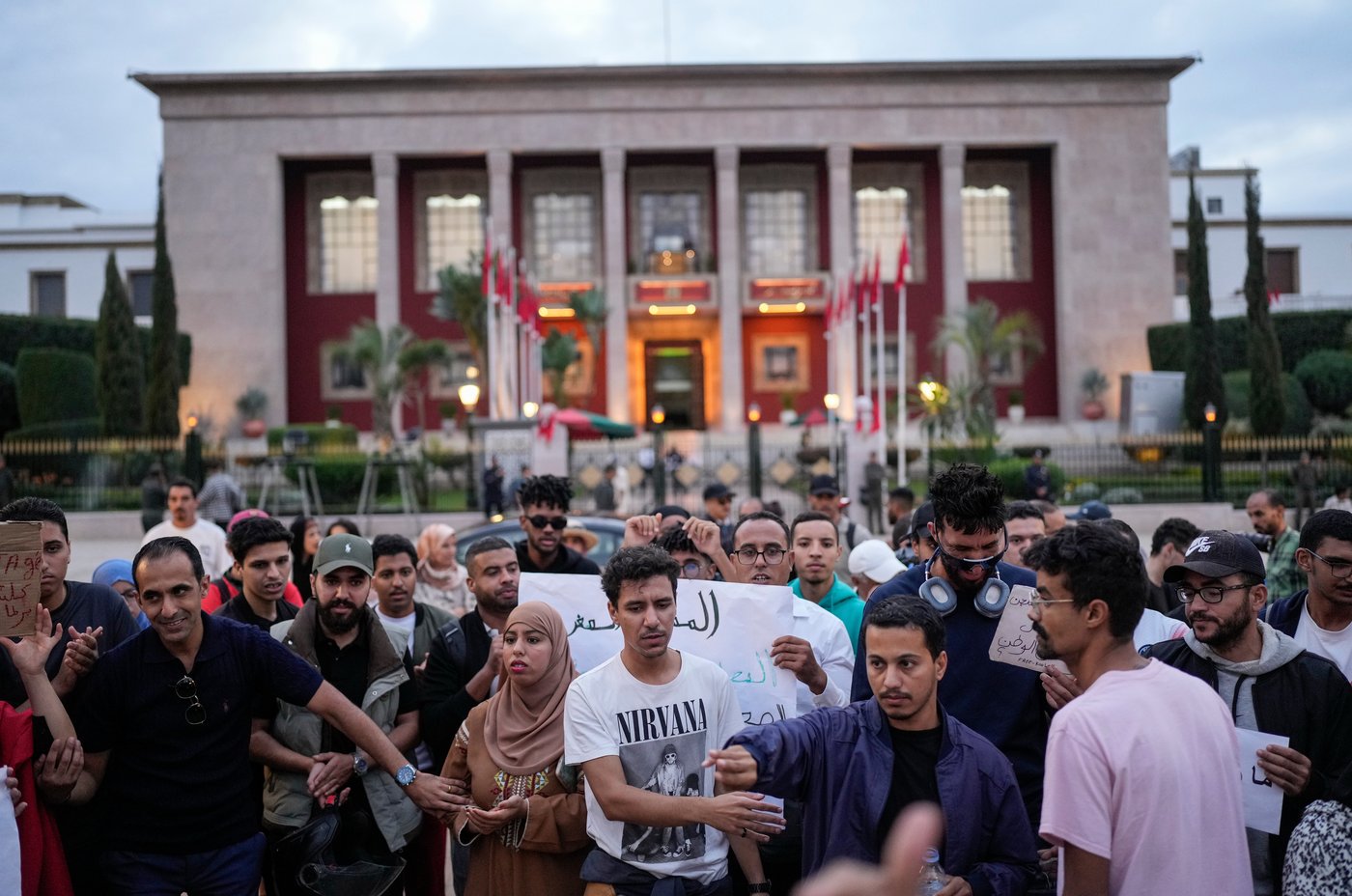
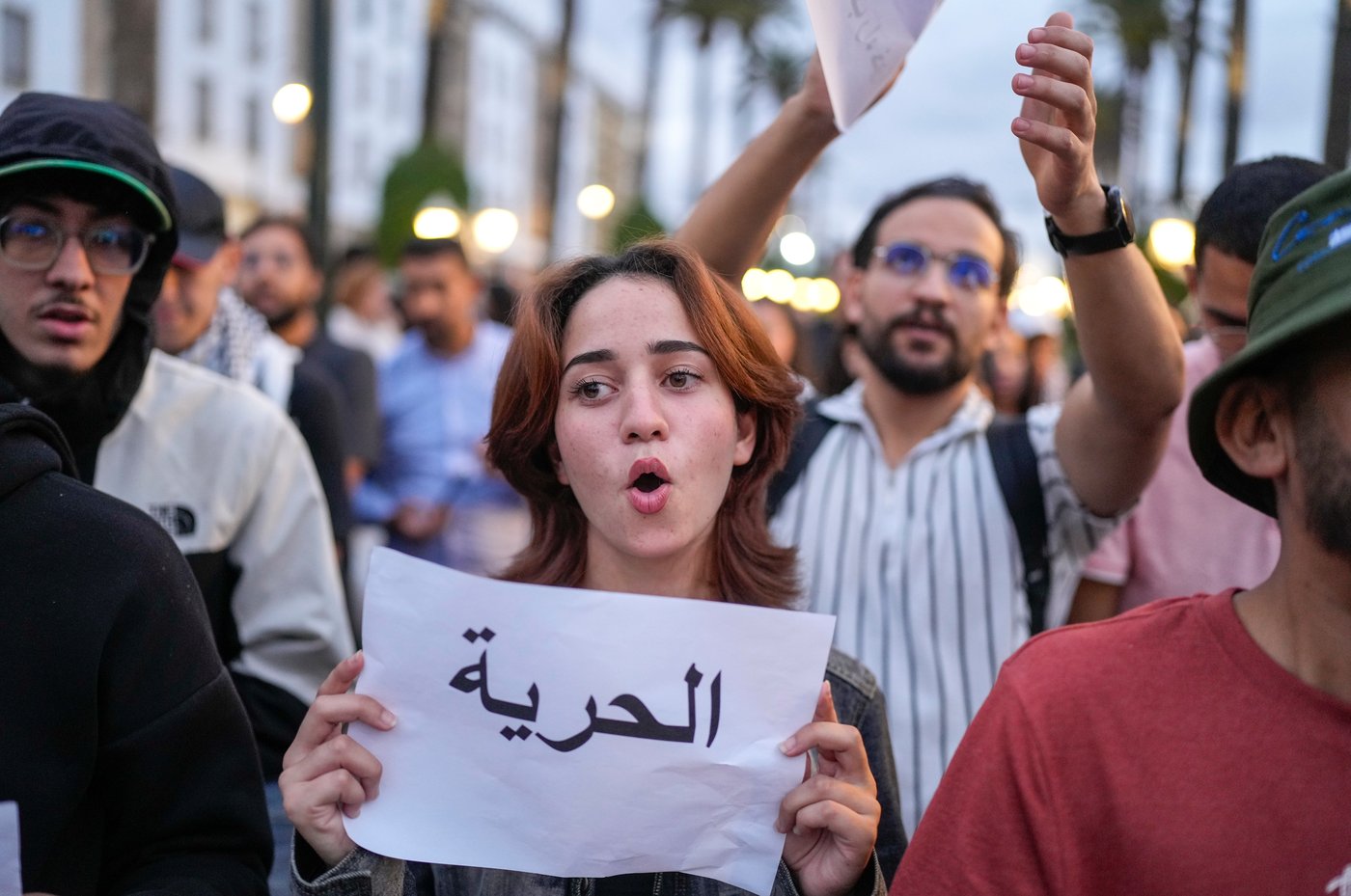
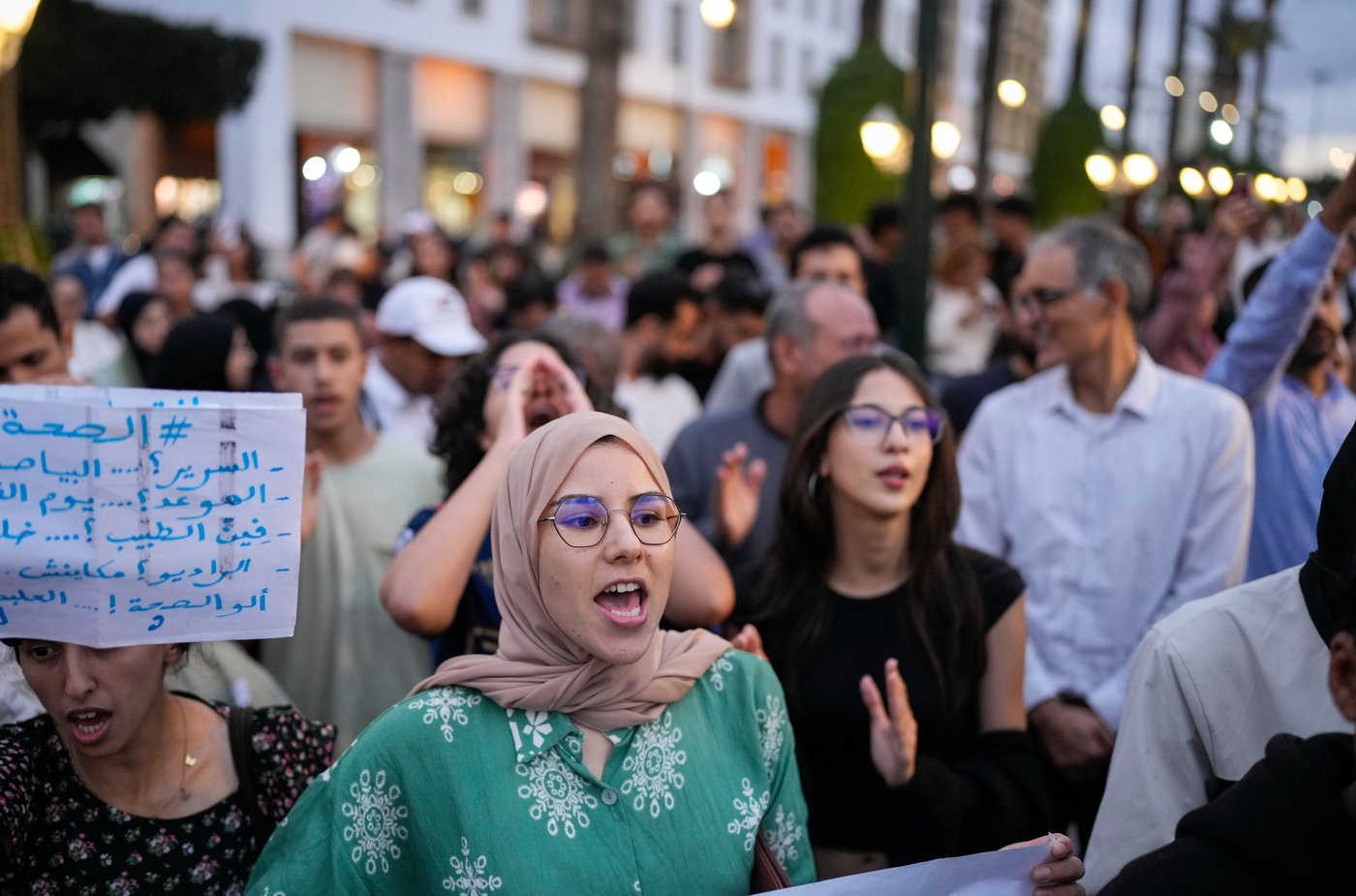
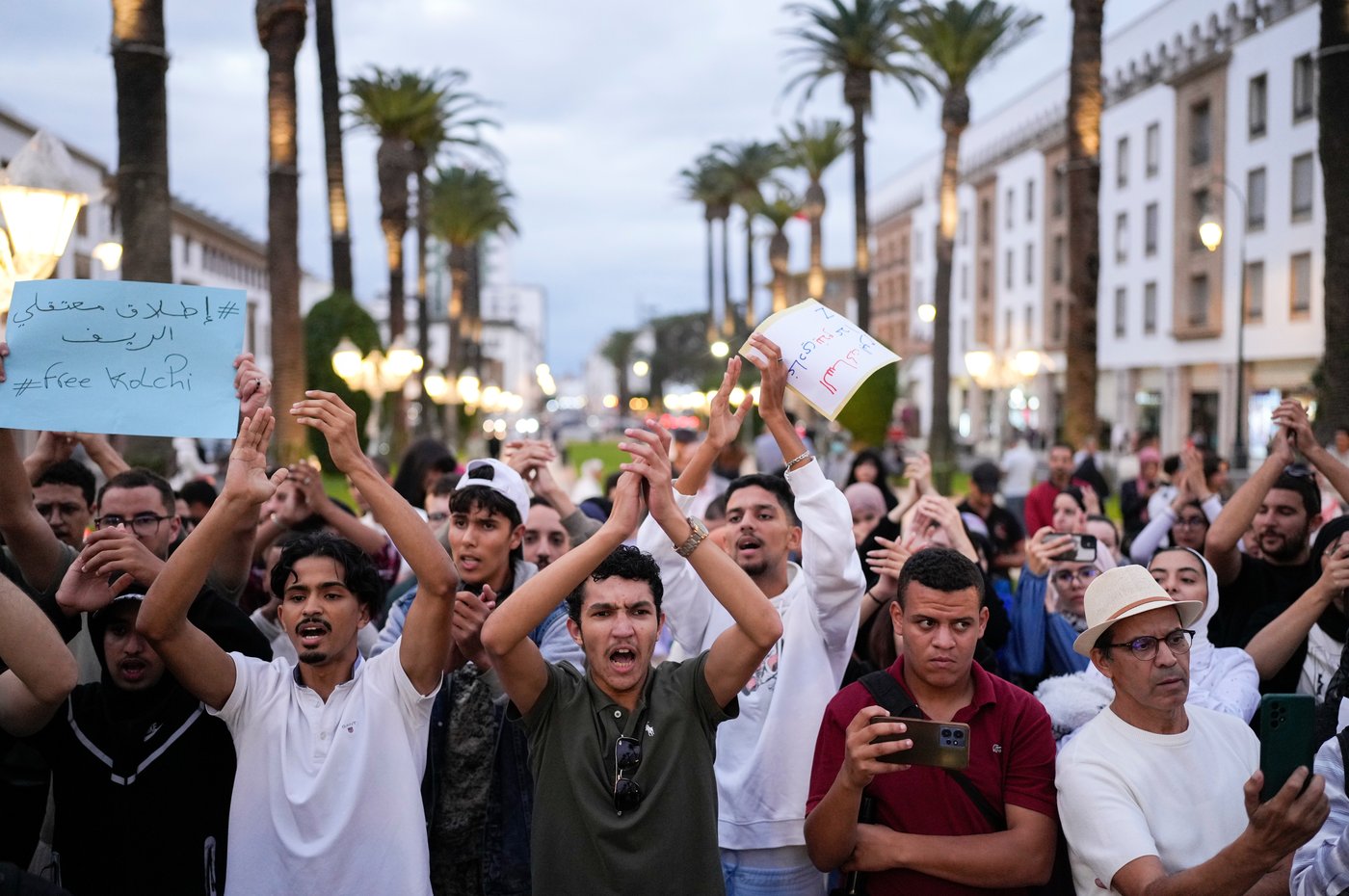
This site is protected by reCAPTCHA and the Google Privacy Policy and Terms of Service apply.
Want to share your thoughts, add context, or connect with others in your community?
You must be logged in to post a comment.